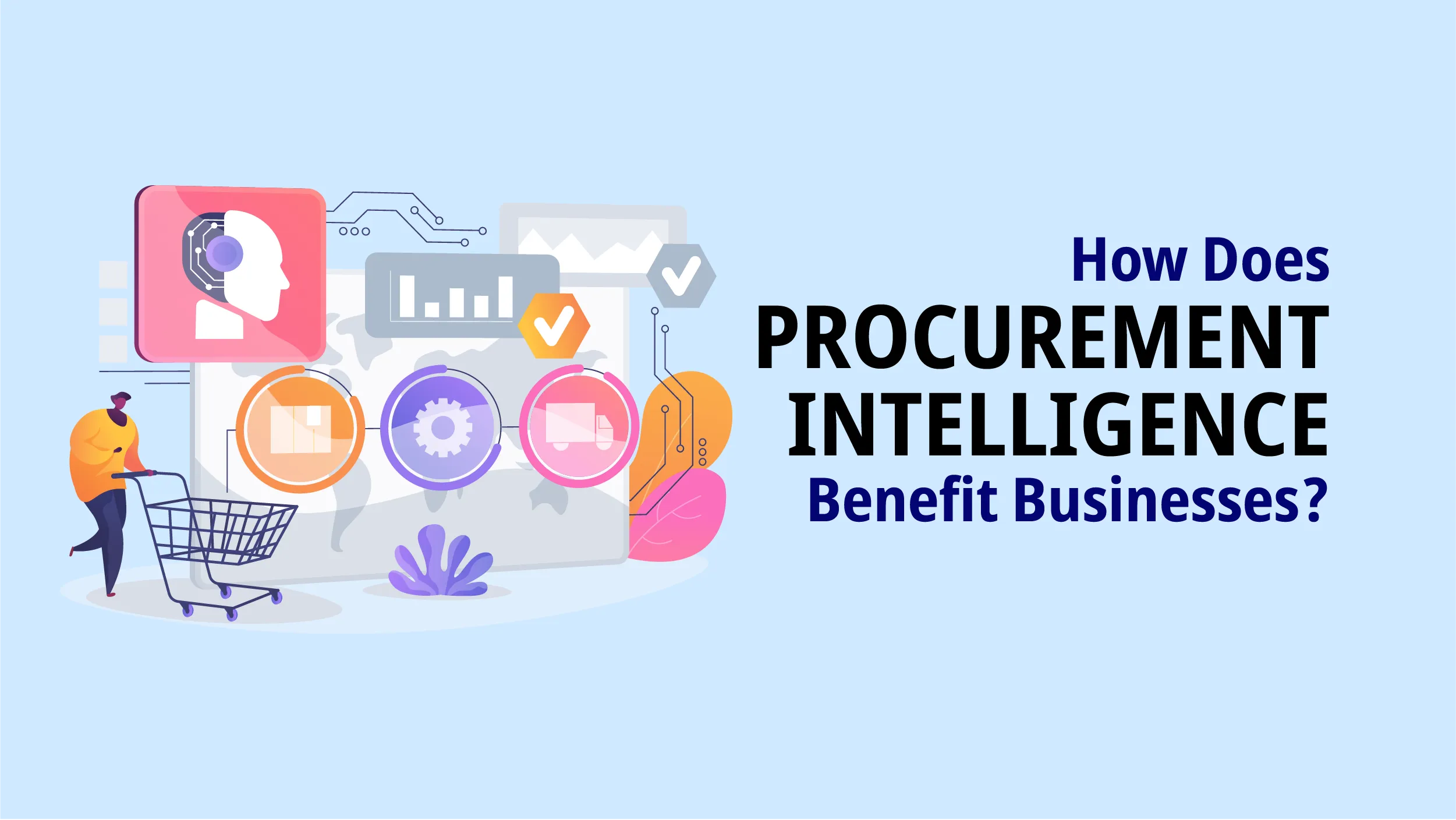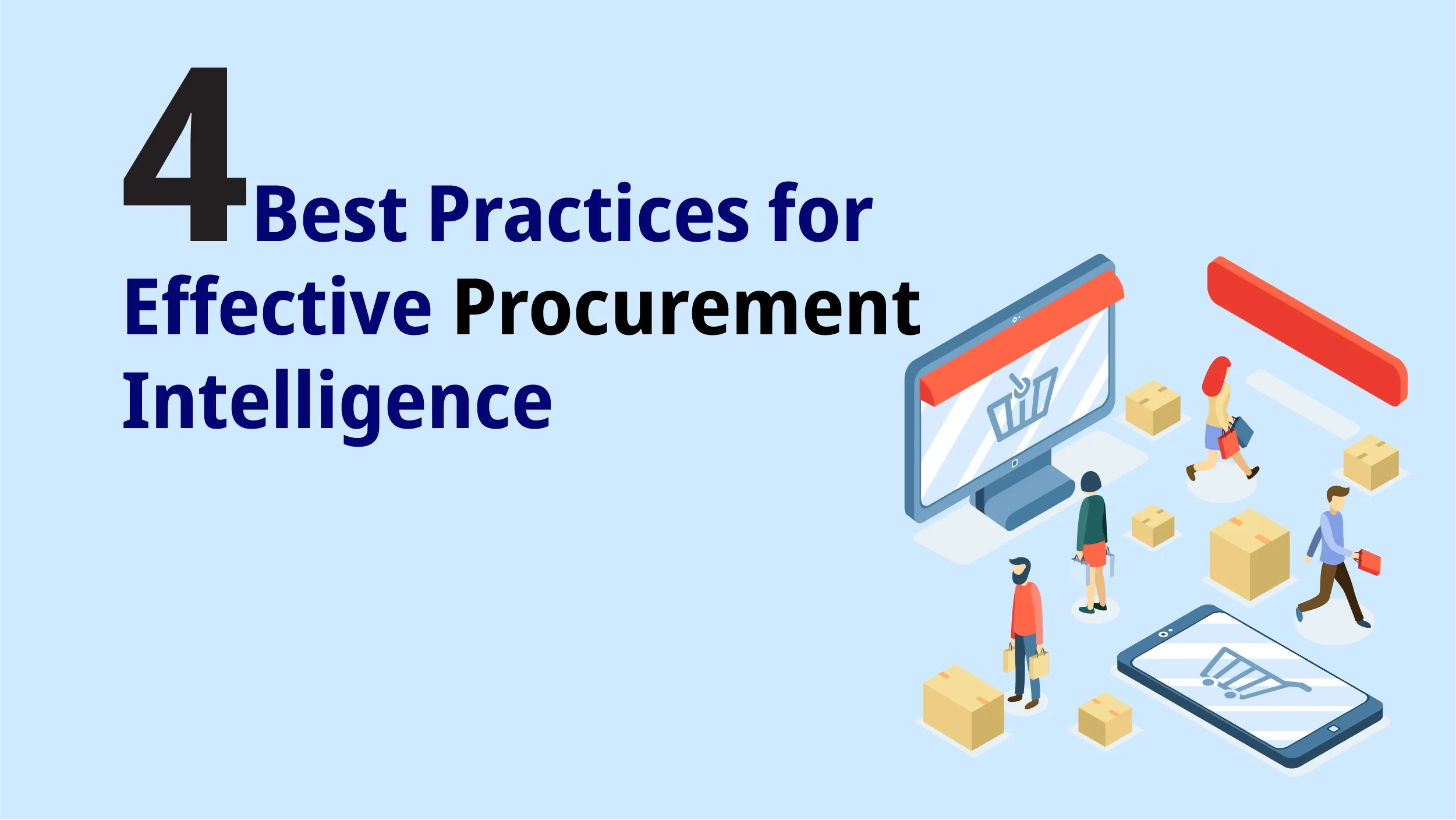In today’s rapidly evolving and increasingly complex business landscape, companies face numerous challenges in managing their procurement processes efficiently. From fluctuating market dynamics to supplier complexities, organizations often struggle to make informed decisions and optimize their procurement strategies.
A study reveals that 55% of companies plan to increase their supply chain investments by 2024, highlighting the current procurement challenges and the opportunities offered by new technologies.
This is where procurement intelligence comes into play. It helps companies make data-driven decisions and revolutionize their procurement processes by utilizing cutting-edge tools like artificial intelligence (AI) and data analytics. Let’s learn more about it.
What is Procurement Intelligence?
The methodical collection and examination of information about supply markets to make well-informed procurement decisions is known as procurement intelligence. It entails data collection and its examination to enhance productivity and aid procurement teams. Through the use of procurement intelligence, companies may navigate an increasingly unstable supply chain by developing strategic solutions and making data-driven decisions.
Maximizing sourcing and purchasing decisions entails analyzing past data, placing it in context, and forecasting emerging trends or patterns. Procuring aims to automate procedures and revolutionize supplier relationships, spending, sourcing, and purchasing.
How Does Procurement Intelligence Benefit Businesses?

Here are the top benefits of using intelligent procurement methods:
- Cost Savings: It enables companies to pinpoint cost-saving opportunities by analyzing data on spending patterns, supplier performance, and market trends. It allows procurement teams to easily compare vendor costs, set spending thresholds, and negotiate better deals.
- Efficiency and Automation: Intelligent procurement optimizes workflows and automates repetitive tasks. For instance, automatic reminders for contract renewals can save money and enhance vendor relationships. Leveraging procurement intelligence, organizations can streamline processes, reduce manual efforts, and boost overall efficiency.
- Strategic Sourcing: It offers valuable insights into supply market intelligence, aiding companies in developing innovative and sustainable sourcing strategies. It helps identify market opportunities, evaluate supplier capabilities, and make data-driven decisions during the strategic sourcing process.
- Risk Management: Accurate and timely intelligence, along with predictive analytics aids in better decision-making regarding suppliers, reducing the risk of poor performance or supply chain disruptions. By analyzing market data, companies can identify potential risks and take proactive measures to mitigate them.
- Competitive Advantage: It provides a competitive edge by keeping companies ahead of market trends and facilitating strategic decisions. It helps businesses navigate the volatile supply chain, make tactical choices, and formulate solutions that align with their objectives.
- Data-Driven Decision-Making: Companies gain access to comprehensive data that drives informed decision-making. This visibility into spending patterns, supplier performance, and market dynamics enables organizations to make strategic choices based on accurate and up-to-date information.
Also Read: 6 Ways Maritime AI Is Transforming the Industry in 2024
4 Best Practices for Effective Procurement Intelligence

Investing in high-quality data, encouraging cross-functional cooperation, keeping abreast of industry developments, and making a commitment to ongoing improvement are some of the best practices in intelligent procurement.
- Data Quality: Ensuring accurate and reliable data is crucial. Enterprises can prioritize data quality by implementing data cleansing, validation, and integration processes. This guarantees that insights derived from the data are trustworthy and actionable.
- Cross-Functional Collaboration: Fostering collaboration between procurement teams and other stakeholders, such as finance, operations, and marketing, enables intelligent procurement to align procurement strategies with broader business goals. This synergy helps in creating a cohesive strategy that benefits the entire enterprise.
- Staying Updated on Market Trends: Keeping abreast of market trends is essential for effective procurement intelligence. Procurement professionals should continuously monitor industry news and engage with their peers to stay informed about the latest developments. This knowledge allows procurement organizations to adapt their strategies to market changes, ensuring they remain competitive and proactive.
- Continuous Improvement: It is an iterative process that requires ongoing enhancement. Regularly reviewing procurement strategies, incorporating feedback from stakeholders, and leveraging innovative technologies are key to driving continuous improvement in procurement operations. This commitment to refinement helps organizations remain agile and responsive to evolving business needs.
Disadvantages of Procurement Intelligence
- Execution and Change Management: Implementing changes can be challenging and time-consuming. Procurement leaders must recognize the difficulties associated with adopting artificial intelligence (AI) in procurement and ensure that effective change management strategies are in place. 85% of businesses find it difficult to meet sustainability goals in procurement because it’s hard to find suppliers who use sustainable practices.
- Recognizing Opportunities: The opportunities presented by AI and intelligent procurement are promising but can sometimes be complex or not immediately apparent. Procurement leaders need to clearly understand the potential benefits and opportunities that AI can offer in modern industries.
- Data Quality and Integration: Procurement relies heavily on accurate and high-quality data. Ensuring data integrity, consistency, and integration across various systems and sources can be challenging. Data cleansing, standardization, and integration efforts are necessary to derive meaningful insights from the data.
- Skill and Knowledge Gap: Effectively utilizing procurement intelligence technologies may require new skills and knowledge within the procurement team. Procurement professionals may need to upskill or reskill to leverage AI and other advanced technologies effectively in their procurement processes.
- Data Security and Privacy: Data security and privacy become critical concerns due to the integration of AI. Protecting sensitive procurement data and ensuring compliance with data protection regulations can be challenging, requiring robust security measures and protocols.
Final Takeaway
Procurement intelligence has the potential to completely transform how businesses handle their procurement procedures in the future. Businesses may now leverage the power of precise and timely market insights to enhance efficiency, lower costs, manage risks, and gain a competitive edge by utilizing AI and data analytics developments.
There will be a massive shift toward data-driven decision-making, enhanced supplier relationships, and expedited procurement workflows as businesses continue to realize the value of intelligent procurement. The use of intelligent technology in procurement will be key to opening up new avenues, improving strategic sourcing, and navigating the challenges of the global supply chain.




